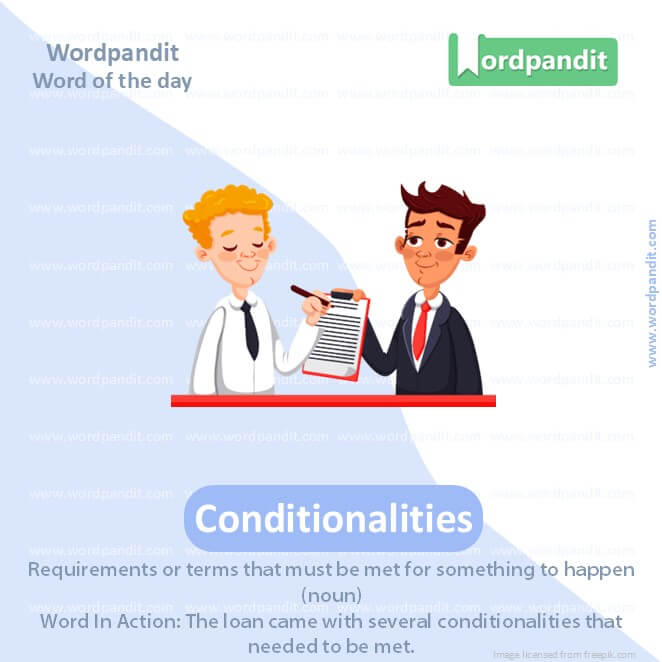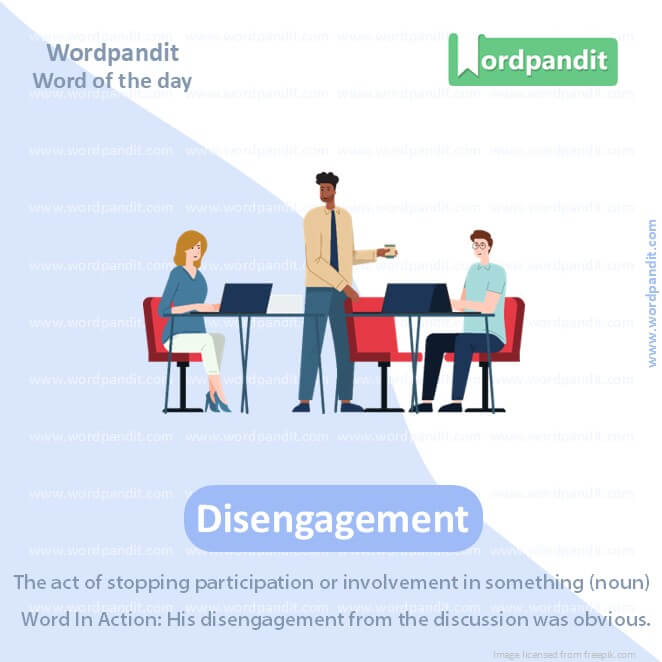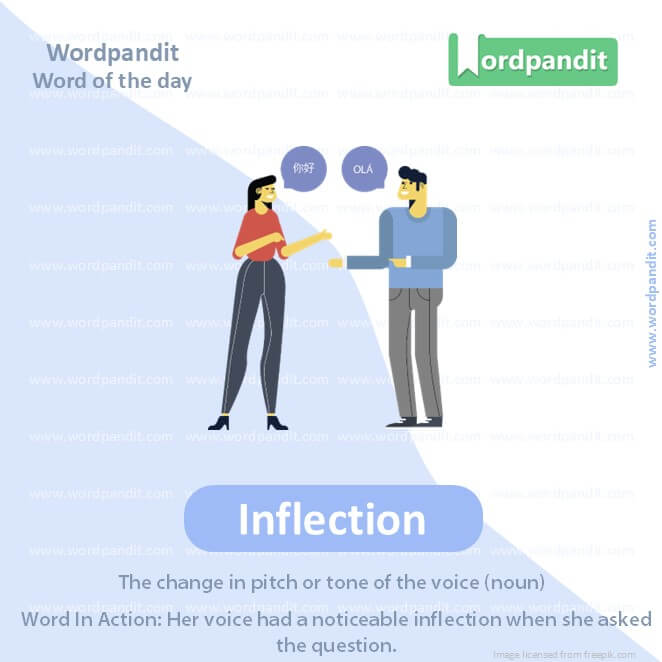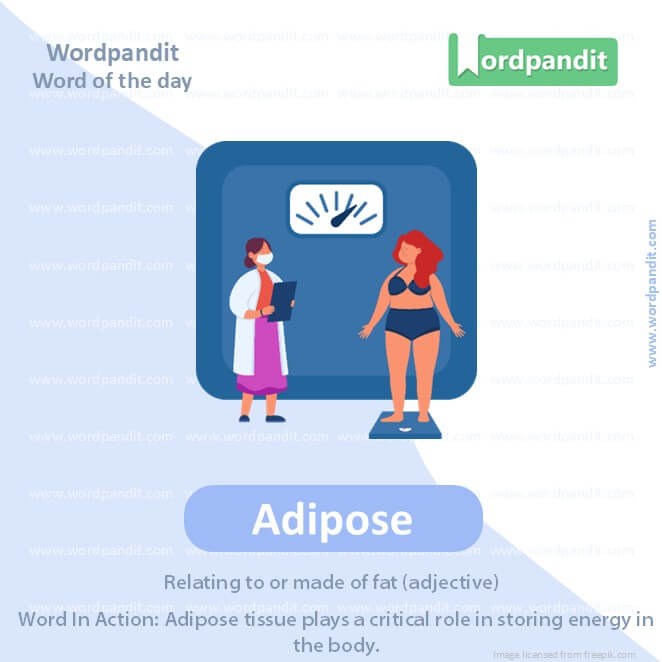Daily Vocabulary Words: Enhance Your Lexicon with Leading Newspapers & Publications
Welcome to the Daily Vocabulary section at Wordpandit!
Our mission is straightforward: to bring you essential vocabulary words featured in top newspapers and publications worldwide. By focusing on words you’ll encounter in renowned sources, we aim to help you enhance your vocabulary effectively and practically.
Our selection includes words from:
– The New York Times
– The Washington Post
– Scientific American
– BBC
– The Guardian
– Psychology Today
– Wall Street Journal
– The Economist
– The Hindu
– The Times of India
– The Economic Times
– Hindustan Times
– Live Mint
– The Indian Express
– And many more.
We are committed to your vocabulary development. Simply visit this section regularly and explore the daily posts. This is your go-to repository for commonly used words, providing significant practical benefits by familiarizing you with vocabulary from the leading publications listed above.
Make it a habit to visit our website daily and expand your lexicon with words from top newspapers and publications.

Word 1- Conditionalities
Context- Not offered with conditionalities, referring to a bail-out
Source- The Hindu
Explanatory Paragraph: Imagine you want to play a game, but your friend says, “We can play only if you promise to share your toys later.” That’s a condition! So, when there are conditions that need to be met before something happens, those are called “conditionalities.”
Meaning: Requirements or terms that must be met for something to happen (noun).
Pronunciation: kuhn-DIH-shuh-nal-i-tees
Synonyms: terms, conditions, requirements, stipulations, provisos, prerequisites
Usage Examples:
1. The loan came with several conditionalities, including timely repayment.
2. The agreement had conditionalities that were difficult to meet.
3. Conditionalities for the job included a university degree and two years of experience.
4. The contract had conditionalities that were negotiable.
Word 2- Deterministic
Context- Not to be deterministic about it
Source- The Hindu
Explanatory Paragraph: Think of a robot that always does the same thing when you press a button—like if you press it and it always walks forward. That’s because the robot is deterministic, meaning it always follows a certain rule and can’t do anything else.
Meaning: Always leading to the same outcome based on specific rules or conditions (adjective).
Pronunciation: dih-tur-muh-NIHS-tik
Synonyms: predictable, set, fixed, inevitable, certain, automatic
Usage Examples:
1. The weather model is deterministic, so it gives the same results every time.
2. In a deterministic system, there are no surprises because everything is predetermined.
3. Some people believe life is deterministic, while others think we have free will.
4. The computer follows a deterministic algorithm to solve the problem.

Word 3- Disengagement
Context- Their decision to ‘redouble their efforts’… to complete disengagement along the LAC.
Source- The Hindu
Explanatory Paragraph: Imagine when you’re playing a game and then decide to stop because you don’t want to play anymore. That’s called “disengagement”—when you stop being involved in something.
Meaning: The act of stopping participation or involvement in something (noun).
Pronunciation: dis-en-GAYJ-ment
Synonyms: withdrawal, detachment, separation, disconnection, retreat, alienation
Usage Examples:
1. The teacher noticed the students’ disengagement during the boring lecture.
2. Disengagement from the project led to its failure.
3. The soldier’s disengagement from the battlefield was strategic.
4. His disengagement from social media improved his mental health.

Word 4- Inflection
Context- The world was at an inflection point.
Source- The Hindu
Explanatory Paragraph: When you’re talking to your friend and suddenly make your voice go higher or lower, like when you ask a question, that change in how your voice sounds is called “inflection.”
Meaning: The change in pitch or tone of the voice (noun).
Pronunciation: in-FLEK-shun
Synonyms: tone, modulation, intonation, pitch, cadence, accent
Usage Examples:
1. Her inflection changed when she was asking a question.
2. The teacher’s inflection kept the students interested in the lesson.
3. Actors practice their inflection to convey emotions better.
4. A change in inflection can make a sentence sound completely different.
Word 5- Fraught
Context- India’s fraught relations with China
Source- The Hindu
Explanatory Paragraph: Imagine trying to carry a basket full of apples, but it’s so heavy that you’re afraid they might all fall out. That’s what “fraught” means—it describes something full of worry or problems.
Meaning: Full of something undesirable, usually stress or difficulty (adjective).
Pronunciation: frawt
Synonyms: tense, anxious, worried, burdened, filled, loaded
Usage Examples:
1. The conversation was fraught with tension.
2. Planning the trip was fraught with challenges.
3. The situation at work was fraught with misunderstandings.
4. Their relationship has always been fraught with complications.
Word 6- Panacea
Context- Who seem to think of FDI from China as a panacea for meeting India’s investment gaps
Source- The Hindu
Explanatory Paragraph: Imagine if you had a magic potion that could fix everything—whether you have a cold, a broken toy, or even a bad day. That’s what a “panacea” is, something that can solve all problems, even though it doesn’t really exist.
Meaning: A solution or remedy for all difficulties or diseases (noun).
Pronunciation: pan-uh-SEE-uh
Synonyms: cure-all, universal remedy, elixir, fix, magic bullet, solution
Usage Examples:
1. People often think money is a panacea for all problems.
2. There is no panacea for the challenges facing our society.
3. The doctor reminded the patient that no drug is a panacea for every illness.
4. Many believe technology is the panacea for the world’s issues.

Word 7- Intemperate
Context- Revealed in an intemperate opinion piece in the Global Times.
Source- The Hindu
Explanatory Paragraph: Imagine someone eating so much candy that they get a stomachache because they didn’t stop. That’s called being “intemperate,” when you do too much of something and it ends up causing problems.
Meaning: Lacking self-control or doing something to an excessive degree (adjective).
Pronunciation: in-TEM-per-it
Synonyms: excessive, uncontrolled, immoderate, unrestrained, reckless, overindulgent
Usage Examples:
1. His intemperate behavior at the party upset his friends.
2. The intemperate use of alcohol can lead to health problems.
3. She regretted her intemperate words after the argument.
4. Intemperate spending habits often lead to financial trouble.
Word 8- Acquiesce
Context- Expect the Indian side to cave in incrementally and acquiesce to the new facts
Source- The Hindu
Explanatory Paragraph: Imagine you really don’t want to clean your room, but when your parents ask you to, you finally say “okay” and start doing it. That’s called “acquiescing”—agreeing to something, even if you don’t really want to.
Meaning: To accept something reluctantly but without protest (verb).
Pronunciation: ak-wee-ESS
Synonyms: comply, consent, agree, yield, submit, concede
Usage Examples:
1. She decided to acquiesce to her friend’s request to go to the movies.
2. The child acquiesced to his parents’ demands after some hesitation.
3. Even though he didn’t agree, he acquiesced to the group’s decision.
4. They acquiesced to the new rules without much argument.

Word 9- Adipose
Context- The higher your visceral adipose and therefore your risk of diabetes
Source- The Hindu
Explanatory Paragraph: Imagine a big teddy bear that’s soft and squishy. The squishiness in people and animals comes from something called “adipose,” which is another word for fat in the body.
Meaning: Relating to or made of fat (adjective).
Pronunciation: AD-i-pohs
Synonyms: fatty, lipoid, corpulent, blubbery, fleshy, obese
Usage Examples:
1. The doctor explained the role of adipose tissue in the body.
2. Adipose cells store energy in the form of fat.
3. Animals build up adipose layers to survive cold winters.
4. The adipose deposits were removed during surgery.
Word 10- Anthropometric
Context- Clinical efficacy of body roundness index and other novel anthropometric indices.
Source- The Hindu
Explanatory Paragraph: Think of when the doctor measures how tall you are or how much you weigh. This is called “anthropometric” because it’s all about measuring the human body.
Meaning: Relating to the measurements of the human body (adjective).
Pronunciation: an-thruh-poh-MET-rik
Synonyms: body-measurement, anatomical, dimensional, metric, physical
Usage Examples:
1. Anthropometric data is used to track the growth of children.
2. The research included anthropometric measurements like height and weight.
3. Anthropometric tools help in designing ergonomic furniture.
4. Athletes undergo anthropometric assessments to improve performance.











